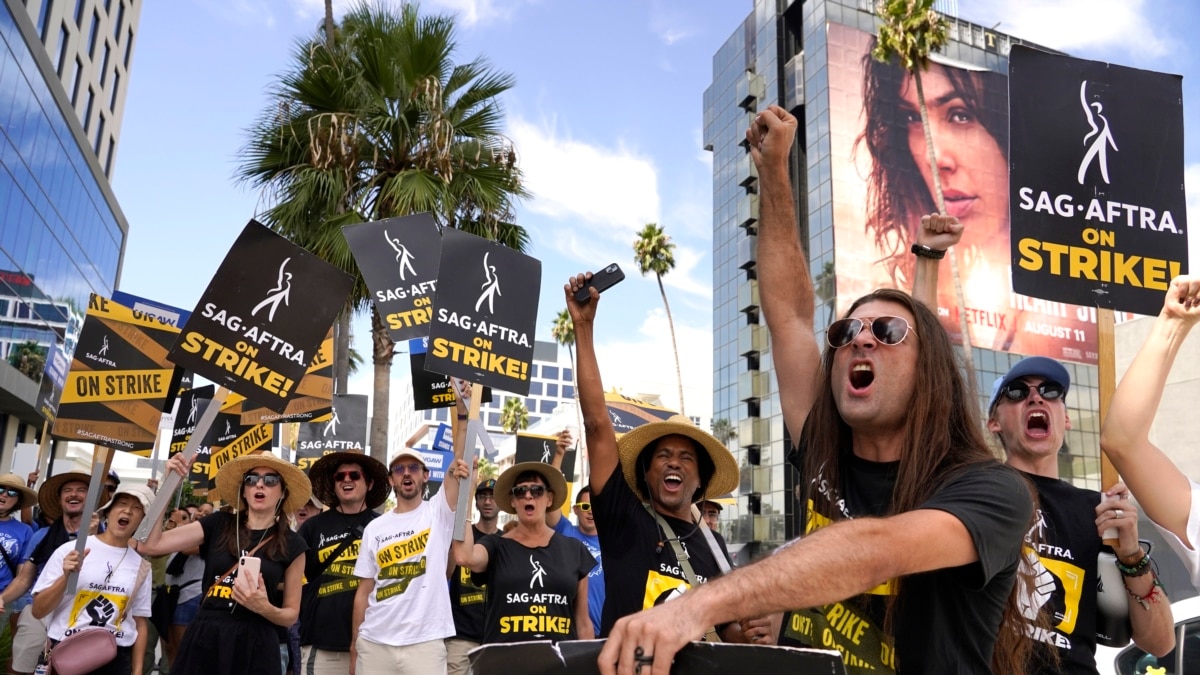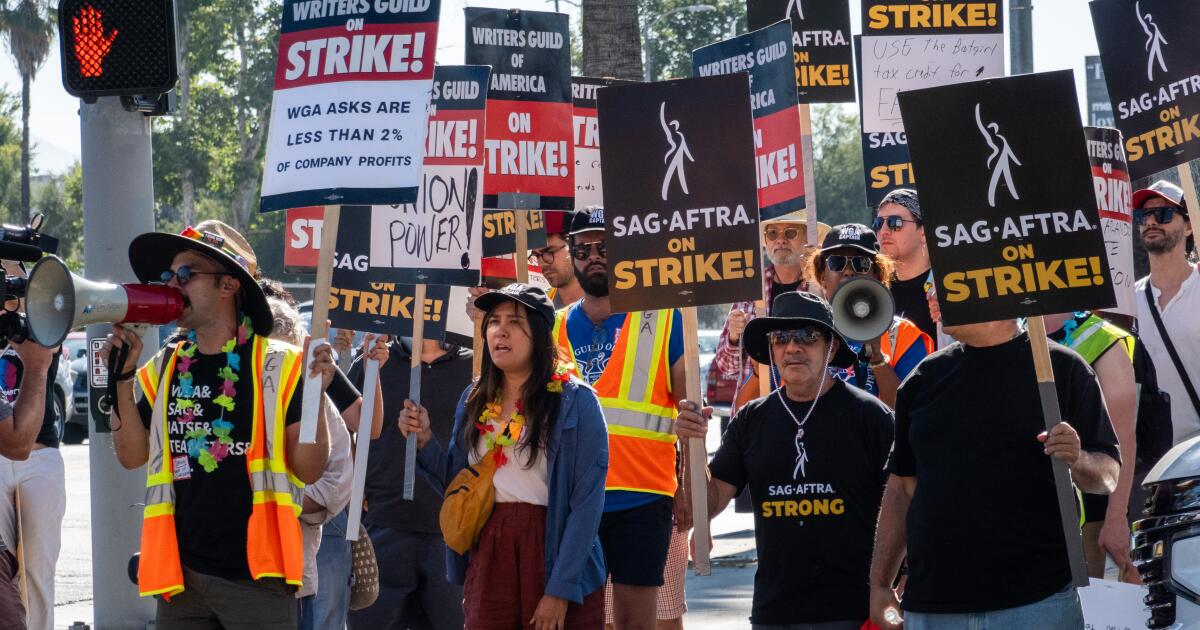The continuous strike by film and television actors has now entered its 100th day, making it the longest in their history. While screenwriters have gotten back to work following a 148-day strike, the actors’ picket lines continue, and negotiations between the Screen Actors Guild-American Federation of Television and Radio Artists (SAG-AFTRA) and major studios have reached an impasse.

Also Read: Disney Celebrates its 100th Year With Once Upon a Studio
At the point when negotiations continued on October 2, hopes were high for a swift resolution to the strike that had been ongoing for 2 1/2 months.
The same group of chief executives from major studios had recently reached a deal with striking writers, addressing issues that actors were also concerned about, including long-term pay, consistency of employment, and control over the use of artificial intelligence (AI).
Studios unexpectedly finished the discussions on October 11, expressing that the actors’ demands were exorbitantly expensive and the two sides were too far apart to continue.
SAG-AFTRA President Fran Drescher expressed frustration with the limited negotiation time, saying, “I’ve never really met people that actually don’t understand what negotiations mean. Why are you walking away from the table?”
One of the key sticking points was a union demand for a fee for each subscriber to streaming services, which the Alliance of Motion Picture and Television Producers (AMPTP) found economically burdensome. Netflix co-CEO Ted Sarandos lamented the breakdown of momentum caused by this demand.
However, SAG-AFTRA argued that framing this demand as a tax on customers was misleading, and that it was the studios themselves who sought a shift from a popularity-based model to one based on the number of subscribers.
Also Read: Taylor Swift Tour Film Surpasses $100 Million in Advance Ticket Sales
As the actors’ strike surpasses the 100-day mark, they find themselves in uncharted territory. The union has never experienced a strike of this duration, and even its most seasoned leaders are navigating unfamiliar circumstances.
SAG-AFTRA remains willing to resume negotiations at any time, but they are adamant that their demands won’t change.
Rather than the actors, the writers experienced a false start in negotiations with studios, which eventually led to a successful resolution after a second attempt.
This history offers some hope that the actors’ strike could still see a positive outcome in the future.Hollywood actors’ strikes have been less frequent and shorter in duration compared to writers’ strikes.
The Screen Actors Guild (which added “AFTRA” in a 2011 merger) has only gone on strike against film and TV studios three times in its history.
Each of these strikes was fueled by emerging technology and the need to address compensation issues. The most notable simultaneous strike by actors and writers took place in 1960 when actors sought pay for the airing of their work on television, leading to a compromise and an end to their 42-day strike.
Also Read: Harry Potter Actor Sir Michael Gambon Dies at 82
In 1980, actors went on their longest strike for film and television until the present one, lasting 67 days. They were seeking payment for their work on home video cassettes and cable TV, eventually reaching a tentative agreement with gains but also compromises.
This time, the strike has disrupted Hollywood’s production machine, with many TV shows and films put on hold, including highly anticipated projects like “Wicked,” “Deadpool 3,” and “Mission Impossible — Dead Reckoning Part 2.”
The strike’s impact is being felt across the industry, and even major events like the Emmys and potentially the Oscars are confronting uncertainty.
According to the viewpoint of SAG-AFTRA, the strike is a battle for the future of their profession and industry.
They point to the changes in the entertainment landscape, particularly the rise of streaming services, as a factor affecting their members’ ability to make a living.
The compression of work opportunities, coupled with inadequate compensation, has left many working actors struggling to cover their basic expenses.
SAG-AFTRA’s core demands include increasing employer contributions to health and pension funds, ensuring minimum wage increases that keep up with inflation, and addressing issues related to the use of AI. They also seek fair compensation in a streaming-dominated industry.
Also Read: Taylor Swift and Beyoncé at Eras Tour Film World Premiere






















